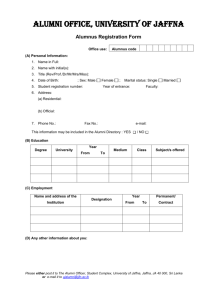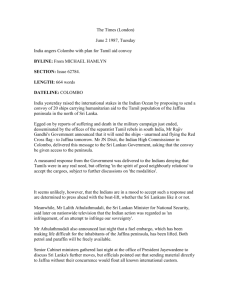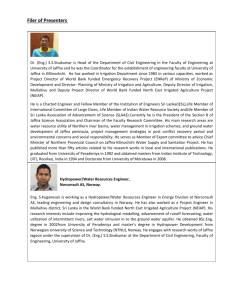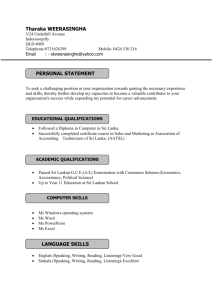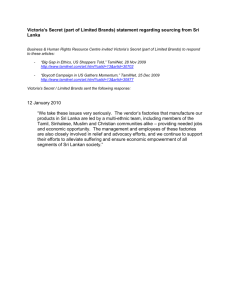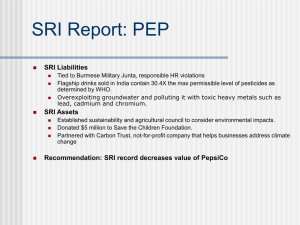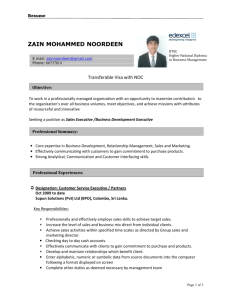Burning of Jaffna library
advertisement
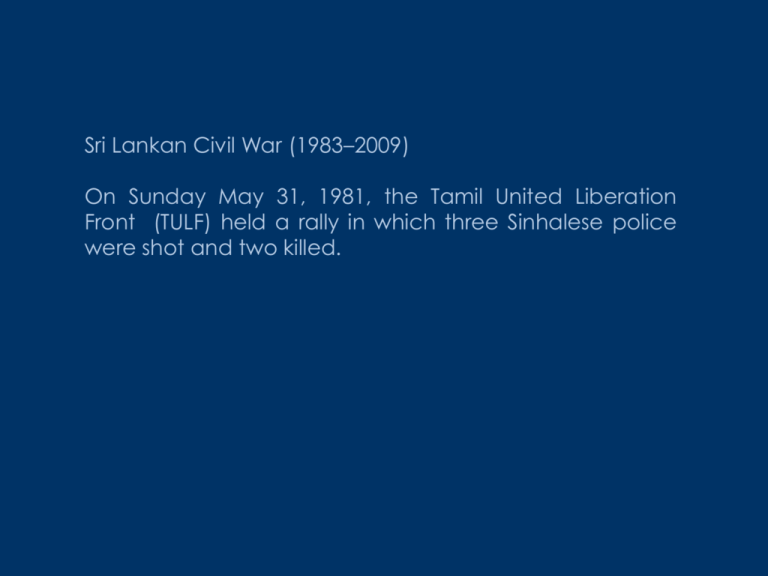
Sri Lankan Civil War (1983–2009) On Sunday May 31, 1981, the Tamil United Liberation Front (TULF) held a rally in which three Sinhalese police were shot and two killed. Sri Lankan Civil War (1983–2009) On Sunday May 31, 1981, the Tamil United Liberation Front (TULF) held a rally in which three Sinhalese police were shot and two killed. That night police and paramilitaries began a pogrom that lasted for three days. According to many eyewitnesses, police and government-sponsored paramilitias set fire to the Jaffna public library and destroyed it completely. Sri Lankan Civil War (1983–2009) On Sunday May 31, 1981, the Tamil United Liberation Front (TULF) held a rally in which three Sinhalese police were shot and two killed. That night police and paramilitaries began a pogrom that lasted for three days. According to many eyewitnesses, police and government-sponsored paramilitias set fire to the Jaffna public library and destroyed it completely. Over 97,000 books along with numerous culturally important and irreplaceable manuscripts were destroyed. Burning of Jaffna library Burning of Jaffna library Burnt shell of the post event library Location Jaffna, Sri Lanka Date May 31 to June 1, 1981 (+6 GMT) Target Primarily Sre Lankan Tamils By Sinahalese Police, paramilitaries, politicians and other hooligans The burning of the Jaffna library (Tamil: யாழ் ப ாது நூலகம் எரிப்பு) was an important event in the Sri Lankan civil war. An organized mob of Sinhalese origin went on a rampage on the nights of May 31 to June 1, 1981, burning the Jaffna public library. It was one of the most violent examples of ethnic biblioclasm of the 20th century.Term[›][1] At the time of its destruction, the library was one of the biggest in Asia, containing over 97,000 books and manuscripts.[2][3] Burning of Jaffna library From Wikipedia, the free encyclopedia Jump to: navigation, search Burning of Jaffna library Burnt shell of the post event library Location Jaffna, Sri Lanka Date May 31 to June 1, 1981 (+6 GMT) Target Primarily Sri Lankan Tamil Attack type Burning, Shooting Weapon(s) Fire, Guns Deaths 4 Injured Unknown Perpetrators Police, paramilitaries, politicians and other hooligans of Sinhalese origin.[1][2][3][4] Part of a series on Sri Lankan Tamil history Legendary[show] Ancient[show] Imperial[show] Medieval[show] Colonial[show] Post independence[show] Civil war[show] Post civil war[show] Historical figures[show] History of Eastern Tamils Tamil Eelam portal Tamil people portal Sri Lanka portal v Background The library was built in many stages starting from 1933, from a modest beginning as a private collection. Soon, with the help of primarily local citizens, it became a full-fledged library. The library also became a repository of archival material written in palm leaf manuscripts, original copies of regionally important historic documents in the contested Contest[›]political history of Sri Lanka and newspapers that were published hundreds of years ago in the Jaffna peninsula. It thus became a place of historic and symbolic importance to all Sri Lankans.[4][5] Eventually the first major wing of the library was opened in 1959 by then Jaffna mayor Alfred Duraiappah. The architect of the Indo-Saracenic style building was one Narasimhan from Madras, India. Prominent Indian librarian S.R. Ranganathan served as an advisor to ensure that the library was built to international standards. The library became the pride of the local people as even researchers from India and other countries began to use it for their research purposes.[4][5] The riot and the burning Sri Lankan Civil War (1983–2009) Background Sri Lanka · History of Sri Lanka Origins of the Civil War Origins of the Civil War · Sri Lankan Tamil nationalism · Sinhalese Buddhist nationalism · Riots · Black July Main phases Eelam War I · Indian intervention · Eelam War II · Eelam War III · Eelam War IV LTTE LTTE
